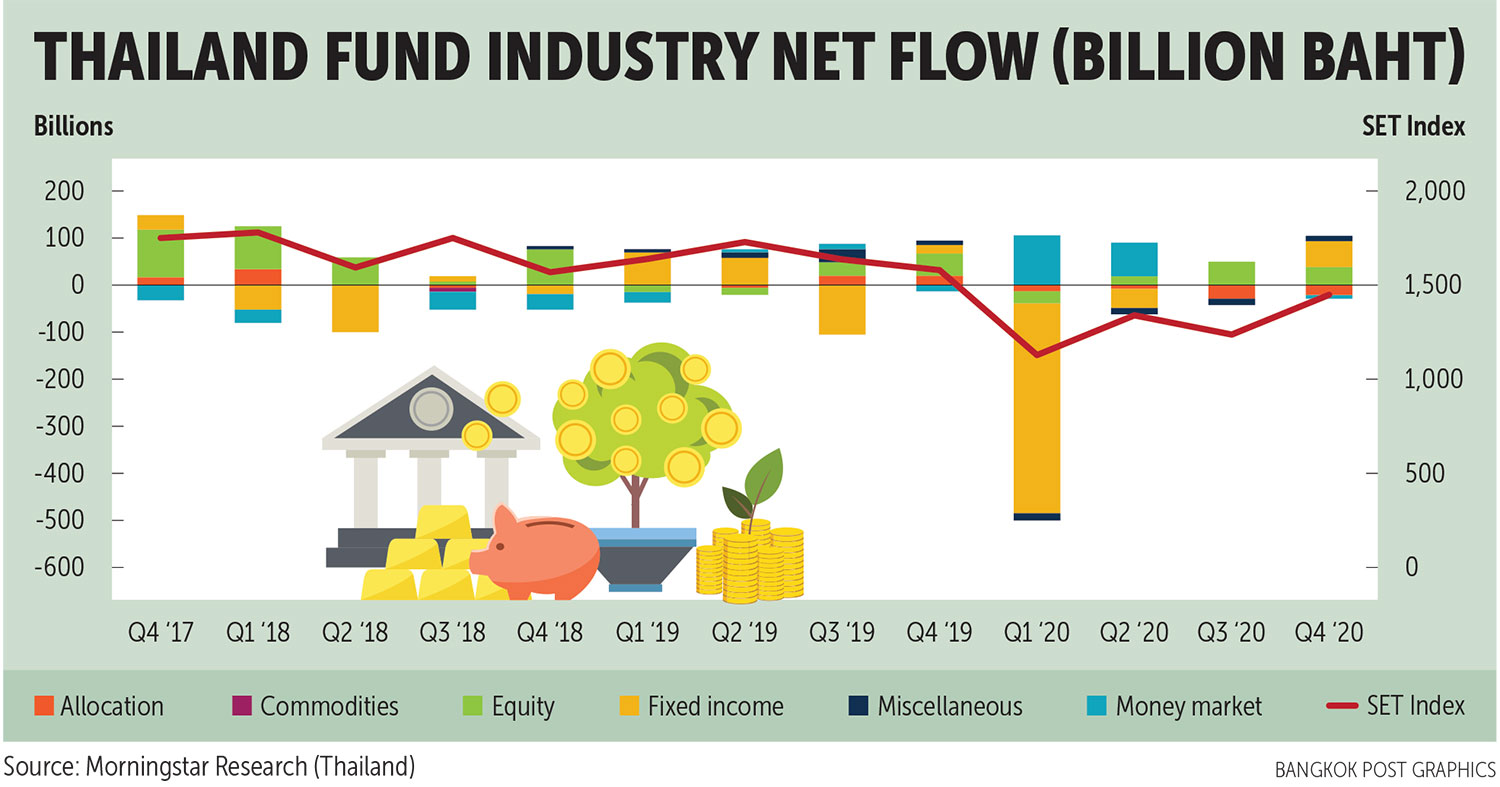Thailand: Mutual funds tally massive net outflows
Thailand’s mutual fund industry registered a 6.5% decrease in net asset value to 5 trillion baht last year with net outflows of 280 billion baht, attributed to the effect from the closure of four fixed-income funds of TMBAM Eastspring, according to Morningstar Research Thailand.
Thai large-cap equity funds registered a contraction for the first time in 15 years, with net outflows of 20 billion baht after long-term equity funds (LTFs) were replaced by Super Savings Funds (SSF) and Super Savings Funds Extra (SSFX) in 2020 in terms of tax refunds, which failed to attract as much capital as their predecessor.
Chayanee Juengmanon, senior research analyst at Morningstar Research Thailand, said money market funds attracted the highest net inflows in 2020 at 164 billion baht, while domestic equity funds excluding LTFs, retirement mutual funds (RMFs), SSFs and SSFXs dropped by 22% from 2019.
She said the net asset value of SSFs and SSFXs in 2020 was 22 billion baht, lower than the preliminary estimate of 30-40 billion for the funds, which require a longer investment period of 10 years, while LTFs only required seven years.
While LTFs offered investors a maximum deductible rate of 15% of personal income or 500,000 baht, investors must combine their investment in SSFs and SSFXs with other types of long-term investment such as provident funds, life insurance and RMFs to calculate the tax deduction, cutting the tax privilege for long-term investment by half, said Ms Chayanee.
She said mutual funds recorded 77.8 billion baht in net inflows in the fourth quarter last year as investors moved from money market funds to high-risk assets.
Fixed-income funds had the largest net inflows of 56.7 billion baht in the last quarter, followed by equity funds with inflows of 37.7 billion.
In 2020 China equity funds reached 119 billion baht, up 185% from the previous year, while global technology funds tallied net inflows of 2.2 billion baht in the fourth quarter, a dip from 5.1 billion in the same period of 2019.
Total net inflows for SSFs and SSFXs in the fourth quarter amounted to 9.6 billion baht, significantly lower than for LTFs in previous years, which averaged 20 billion for the same period.
SSFs allow investors to engage in various assets, including global products, not only Thai equities.
Assets in SSFs are mainly global products that grant investors the opportunity to capture higher returns and diversify, helping to reduce market risk, said Ms Chayanee.
She said total outstanding units worth over 350 billion baht still remained in LTFs at the end of 2020, while units worth about 20 billion are set to mature in 2022.
Ms Chayanee expects sales of LTF units if the SET Index rises to more than 1,600 points.
However, some stocks in LTFs must be held until 2028, according to rules requiring a seven-year holding period, she said.
“Mutual funds are expected to see gradual growth this year as the pandemic is eased by mass inoculations in many countries, with high-risk assets such as stocks surging around the world amid the global economic recovery,” said Ms Chayanee.
“We expect global assets to grow more than domestic assets.”
Source: https://www.bangkokpost.com/business/2054391/mutual-funds-tally-massive-net-outflows


 Thailand
Thailand




